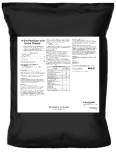US court bans three dicamba-based herbicides

A US federal court has banned three dicamba-based herbicides, ruling that the Environmental Protection Agency (EPA) broke the law when it reauthorized the products’ use in 2020. The judge found that the EPA failed to solicit public feedback, as it was obligated to do.
The decision – which applies to Bayer’s XtendiMax, BASF’s Engenia, and Syngenta’s Tavium – has been welcomed by environmental groups, which object to their use on the basis that the weedkillers have been known to cause extensive damage to non-resistant crops and local ecosystems.
Producers of genetically modified soybeans and cotton, however, maintain that the chemicals are needed to control weeds that no longer respond well to other herbicides.
The three affected companies have expressed their opposition to the ruling and said that they are assessing their legal options while they await guidance from the EPA.
BASF said in a statement that “Most soybean and cotton farmers have made seed and chemistry purchase decisions and, in some cases, are preparing to plant their 2024 crop in the coming weeks. As a result, this order may threaten the livelihoods of soybean and cotton farmers who rely on over-the-top dicamba to control resistant weeds.
“Agricultural input supply chains, which are still recovering from 2020 disruptions, are complex and will be significantly affected by the unanticipated chemistry demands on more than 40 million dicamba-tolerant soybean and cotton acres,” it added.
The weedkillers in question were initially banned in June 2020, when a federal court found that the EPA had not taken full account of the risks associated with their use. But, later that year, the agency issued a new authorization, albeit with additional restrictions.
Enjoyed this story?
Every Monday, our subscribers get their hands on a digest of the most trending agriculture news. You can join them too!












Discussion0 comments